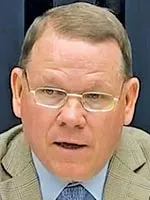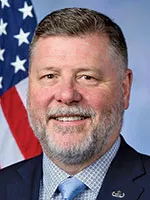Senior Reporter
House Transportation Leaders Tout FHWA Pushback

[Stay on top of transportation news: Get TTNews in your inbox.]
House transportation leaders touted a Texas federal judge’s recent decision to strike down a Federal Highway Administration rule about emissions targets.
Judge James Wesley Hendrix of the U.S. District Court for the Northern District of Texas indicated FHWA lacked Congress’ authorization to issue its climate change-centric requirement for state departments of transportation. Or as he put it, “the rule was unauthorized.”
The decision by the judge on March 27 struck down a key aspect of the Biden administration’s emissions reduction strategy for the transportation sector. Republican Reps. Sam Graves of Missouri and Rick Crawford of Arkansas have staunchly opposed this FHWA rule. The senior policymakers’ central argument was that the rule was absent from 2021’s Infrastructure Investment and Jobs Act, known as the bipartisan infrastructure law.
“This was a clear case of blatant overreach by the Biden administration from the beginning, and we commend the court for its ruling that a ‘federal administrative agency cannot act without congressional authorization,’ ” Graves and Crawford said jointly on March 28. They are the chairmen of the Transportation and Infrastructure Committee and Highways and Transit Subcommittee, respectively.

Graves
“Congress rejected the inclusion of a [greenhouse gas] performance measure requirement when the [bipartisan] infrastructure law was developed, making the administration’s rulemaking an unlawful attempt to circumvent Congress and force this one-size-fits-all burden upon every state and community across the country,” the congressmen continued. “We appreciate the ruling and remain committed to ensuring the administration does not exceed its authority.”
In February, Graves, Crawford and Senate Republican transportation leaders formally pushed back on FHWA’s rule via a procedural tool meant to undo the requirement.
“New York and North Dakota have very different transportation systems, needs and capabilities, but under this one-size-fits-all mandate, they’re effectively treated the same,” said Sen. Kevin Cramer (R-N.D.), ranking member of the Transportation and Infrastructure Subcommittee.

Crawford
“When we negotiated the bipartisan Infrastructure Investment and Jobs Act, we specifically left out the authority FHWA is attempting to exercise with its greenhouse gas emissions performance measure requirement,” added Sen. Shelley Moore Capito (R-W.Va.), Environment and Public Works Committee ranking member. Dozens of Republicans endorsed the tactic, known as a bicameral Congressional Review Act. Several freight stakeholders also endorsed the congressional Republicans’ procedural approach.
Relatedly, earlier this year 21 states filed a federal lawsuit claiming the Biden administration overstepped its authority regarding the FHWA greenhouse gas emissions rule.
During a House transportation committee hearing in December, FHWA Administrator Shailen Bhatt explained the administration associated the rule’s authority with an Obama-era highway policy law. “We’re following the law that was laid out in MAP-21,” Bhatt told the committee.
During an exchange with the administrator at the same hearing, Crawford argued: “This looks to me like a deliberate attempt to sort of skirt the intent of [the Infrastructure Investment and Jobs Act].” The Moving Ahead for Progress in the 21st Century Act, or MAP-21, highway policy law was enacted in 2012.
Want more news? Listen to today's daily briefing above or go here for more info
Under the rule, FHWA sought to require state DOTs and metropolitan planning organizations to establish declining carbon dioxide targets. State DOTs and MPOs also were required to issue reports specific to progress toward achieving those targets. The agency finalized the rule in December.
According to background information in the Federal Register, the rule “does not mandate how low targets must be. Rather, state DOTs and MPOs have flexibility to set targets that are appropriate for their communities and that work for their respective climate change and other policy priorities, as long as the targets aim to reduce emissions over time. The FHWA will assess whether state DOTs have made significant progress toward achieving their targets.”
In November, Secretary Pete Buttigieg observed: “Every state has its own unique climate challenges, and every state ought to have the data, funding and flexibility it needs to meet those challenges head-on.”




